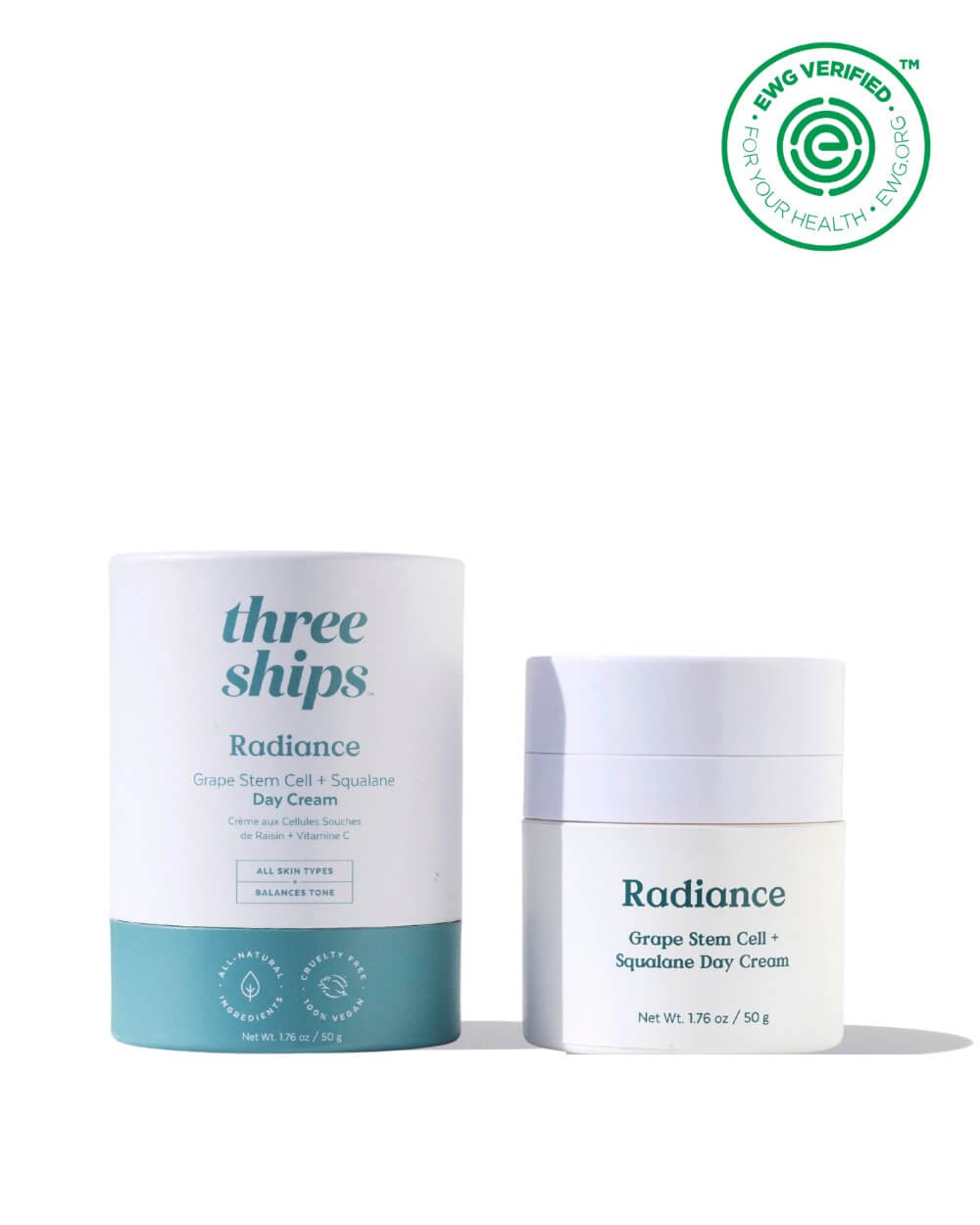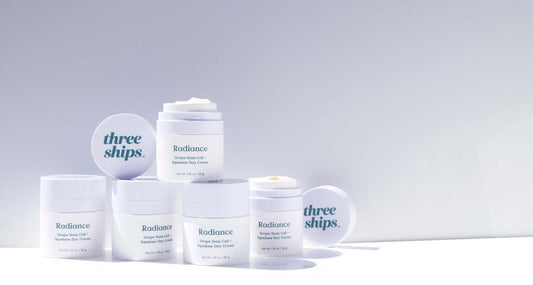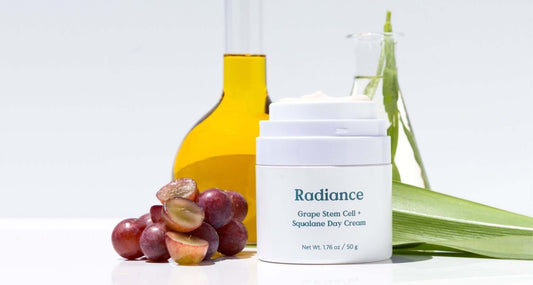Ok, so we all know that drinking water is the right thing to do, right? But, what about your skin? Does drinking water help cleanse your skin and reduce acne? This article explains everything you need to know right now about water consumption and the skin condition of acne.
What Are the Causes of Acne?
Acne is something that most of us deal with occasionally, if not frequently.
Our cabinets are filled to the brim with skincare products promising all kinds of miraculous results, but most of them either dry your skin out, break it out, or make it oily. It’s a struggle that many of us face, so you are not alone.
There are many causes of acne, such as hormone fluctuations, diet, and skin dehydration. Let’s take a deeper look at the causes of skin blemishes and whether drinking water helps acne.
Hormones
When your hormonal levels fluctuate up and down, there is an increase in the oil (sebum) production in your skin. This oil mixes with the bacteria in the pores of your skin and causes acne.
Acne causes blackheads, whiteheads, pimples, cysts, and nodules. It isn’t contagious, but it is bothersome. Clogged pores are a result of dead skin cells, dirt, and sweat that builds up on the skin, bacteria, and excess sebum.
Causes of Hormonal Acne
There are several causes of hormonal acne, some of which you can control and others you cannot. Consider these factors:
-
Lack of Sleep: Try heading to bed a few minutes to an hour before your regular bedtime to snag extra rest. Set a sleep schedule and stick to it.
-
Stress: Utilize breathing methods to relax your body and your mind when you’re feeling stressed. Meditation practices are also helpful for relaxation and managing stress.
-
Skincare Products: Use oil-free, non-comedogenic, and non-acnegenic skincare products to prevent clogged pores.
-
Female Hormonal Changes: Hormone levels change during your menstrual period, if you have irregular periods, if you are pregnant, when you discontinue birth control pills, IUD, or other methods, and during menopause.
-
Hormone Therapy: Testosterone and other hormone therapy treatments cause hormonal changes.
-
Genetics: If you have a family history of acne, chances are you may have a higher probability of having acne as well
-
Pre-existing Conditions: Metabolic and ovarian conditions cause hormonal fluctuations.
-
Medications: Some medications, such as steroids may cause pimples.
Changing your skincare routine, getting adequate sleep, and managing your stress levels may help ease hormonal acne. Seek medical advice for medical conditions that may be affecting your hormonal acne with your healthcare provider or dermatologist.
Unhealthy Diet
Pizza, hamburgers, and other greasy foods may contribute to acne, and it's the low-glycemic foods that you should gravitate to. Studies conducted in the USA, Australia, Korea, and Turkey indicate that consuming low-glycemic foods not only helped people lose weight, but also helped reduce acne breakouts.
Take a closer look at your diet and changes in your skin associated with particular foods. Proper nutrition, managing insulin and blood sugar levels, proper skincare, and acne treatments help keep acne under control and may eliminate it altogether.
Dehydrated Skin
Hydration plays a role in skin health. Water won’t cure acne, but it can help your overall skin health. The skin contains 64% water, along with minerals (electrolytes) including sodium, potassium, and calcium. These minerals support your skin’s hydration. Sodium helps your skin retain water, reducing excess oil production and dryness that cause the development of acne.
Electrolytes balance your skin’s pH, which is also important for managing breakouts. When you remain hydrated, you ensure that your skin has a balance of fluids and electrolytes to protect and support your skin. Water intake does not contain all of the electrolytes you need to defeat dehydration, so talk to your doctor or dermatologist about options for hydrating your skin from the inside out.
Does Drinking Water Get Rid of Acne?
Some studies show that drinking water and remaining hydrated can improve the body’s immune cell response. The body’s immune system fights bacteria (cutibacterium acnes) that cause acne, zits, pimples, and illness. While there is no definitive research that proves drinking water clears acne or blackheads, it can still make a difference.
How Does Water Affect the Skin?
Your skin is the largest organ of your body. All organs consist of many cells and tissues that are made of water, so it's important to stay well-hydrated. Drinking water helps keep your skin refreshed and helps it maintain elasticity. Those who drink water are less likely to develop harsh scars, premature aging, lines, and deeper wrinkles associated with dehydration.
Water also helps flush away toxins from your body, especially harmful toxins that affect your overall health. Drinking water and eating a healthy diet contribute to your health and well-being and help keep your skin radiant.
But how much water should you drink per day? According to the CDC, there is not a defined amount of water a person should drink per day, but there are recommendations for daily water intake.
Increasing foods rich in water content such as watermelon, oranges, and other fruits and vegetables help hydrate your body too. If you do not enjoy drinking water, try a squeeze of fresh lemon in your glass for a refreshing beverage.
Increasing your daily fluid intake may help reduce acne by flushing toxins from your body and skin’s pores and keeping your skin soft and supple. There are other ways that water is beneficial for the skin, including:
Increases Skin Elasticity
When your skin is dehydrated, it lacks elasticity. Check the elasticity in your skin by gently pinching your skin. If it doesn’t quickly bounce back, you may have dry skin, and it may be dehydrated.
Hydrates The Skin
Drinking water hydrates your skin from the inside out, plus it gives you energy by cleansing your body of toxins and helps prevent acne breakouts.
Flush Toxins/Clears Skin
Increasing your water intake improves your skin’s condition and skin health by flushing toxins from your body and skin, improving bodily functions, boosting your immune system, and regenerating cellular structures.
Hydrating Your Skin From the Outside
Moisturizing your skin from the outside is crucial for maintaining a healthy complexion. There are many moisturizing creams available today, so it may seem like a task to choose just one. Here are a few ingredients we recommend.
Hyaluronic Acid
Hyaluronic acid is a naturally occurring fluid found in joints, eyes, and other tissues of the body. There are different types of hyaluronic acid used for cosmetic purposes. Hyaluronic acid is a molecule that holds up to 1000 times its weight in water, which makes it an ultra-hydrating epidermal moisturizer.
Using a hyaluronic serum or moisturizing cream helps moisturize your skin on the outside.
Almond Oil
Almond oil is rich in omega-3, omega-6, and omega-9 fatty acids which helps skin maintain its lipid layer and retain moisture. It is an emollient that softens the skin and contains nutrients that promote soft, healthy skin. Almond oil evens skin texture and skin tone.
Pumpkin Seed Oil
Pumpkin seed oil is a lightweight, yet rich oil that contains linoleic acid, vitamin A, vitamin E, and vitamin C. It has antioxidants and is perfect for dry, damaged skin. Pumpkin seed oil supports the skin’s structure and reduces the signs of fine lines and wrinkles.
Tocopherol
Tocopherol is a light yellow liquid found in plant materials and the main form of vitamin E. It is fat-soluble and contains eight molecules. Tocopherol is a naturally occurring lipid and antioxidant that prevents sun-damaged cells from prematurely aging. It also protects against oxidative damage (causes wrinkles, fine lines, and dark spots) in skin cells.
Grape Stem Cell
Thirsty skin loves grape stem cells because it quenches skin, leaving it radiant and hydrated. It contains an antioxidant that stops free radicals in its place and protects the outer skin cells (epidermis) from damage.
Squalane
Squalane helps restore the skin’s lipid barrier and prevents dryness. It helps to support the skin and protect it from pollutants and irritation. Squalane is a clean, vegan alternative to squalene, which means it treats the skin in the same exact way squalene does, but without questionable ethics.
Bottom Line
Staying hydrated by drinking water helps flush toxins from your body, provides a boost of energy, and hydrates your skin from the inside out. Water helps keep your skin’s barrier strong and the cellular structures healthy. While there is no definite proof that drinking water helps acne, it is thought to nudge the healing of acne.
Three Ships Beauty is proud to provide you with transparent skincare products you can trust. Check out our clean line of skincare today for healthier skin tomorrow.
Sources:
Acne: Overview | American Academy of Dermatology
Can the right diet get rid of acne? | American Academy of Dermatology
A low-glycemic-load improves symptoms of acne | PubMed
Get the Facts: Drinking Water and Intake | Nutrition | CDC
Effects of dehydration on immune functions after a judo practice session | PubMed



